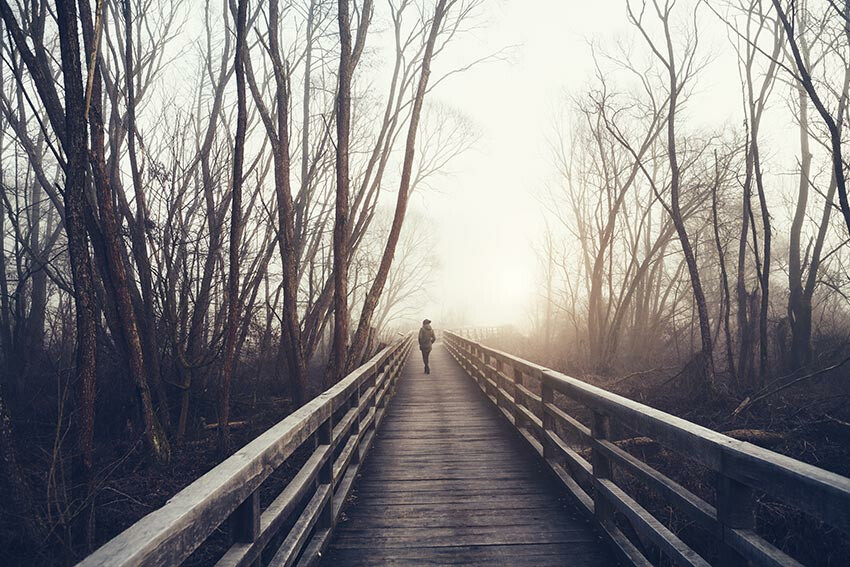Brokenness, Addiction, and Searching for Light and Hope
By Rev. Sarah Schlieckert* 
The following is reposted with permission from Sarah's blog, The Divine Passive.
Tis the season of joy and celebration, right?
And brokenness.
Yep. This is when we must muster our best tools to ignore the pain around us. Because for all the peace and happiness, this Christmas season is also one that sheds light… light on the places in our lives and relationships we’ve spent the rest of the year politely tucking away.
Those family members and friends we’ve gently (or not so gently) ignored? Yep. Right in our faces now. Trying to resist the urge to buy them passive aggressive gifts. Or declare our righteous indignation at whatever despicable view or practice they’ve somehow harmed us or the world with this year.
Joy and celebration.
Ha.
What’s more, this is the season that same brokenness pours out onto our streets.
In the West Virginia panhandle, as in many other areas…too many other areas…you can’t honestly speak about our brokenness without naming the epidemic of opioid addiction tearing about lives, families
It is painful. And difficult.
We want it to stop, but we seem as powerless to stop it
Yep, ironically, even as we protest other people’s lack of taking ownership of their own lives, we cast aside our own responsibility to ourselves and each other.
Yesterday I attended the monthly Berkeley County Ministerial Association meeting, where we heard a presentation from Kevin Knowles, Berkeley County’s Community Recovery Services Coordinator. He shared a host of information and statistics about addiction in our community.
Summary: drug addiction is a problem that is growing. And the costs are staggering: in addition to the crimes associated with drug use, in just the most extreme cases—overdoses—the cost to the taxpayers is around $1200 per emergency call. Over the past year in Berkeley County, that’s inching up towards half a million dollars.
We have the ability through tools like NARCAN, to bring addicts back from the brink of death. This is, however, an ability which challenges us. Because when you’re not an addict, you would think one such instance would scare you sober. But addiction defies logic. And good sense.
Addiction is a disease. It has consequences across the board—for bodies, relationships, communities, you name it. All addiction.
Did I mention alcohol?
During Kevin’s presentation, he shared a video of a first-person account which was from what I’m assuming was a sermon at The Living Room (a church in Martinsburg). The woman described her progression into addiction (and the falling apart of her life), starting with prescription pain pills. She explained that part of her sobriety was understanding that certain emotions (sadness, stress, etc.) are normal parts of life.
So where do we begin?
I’ve only scratched the surface of topics related to the drug epidemic. Clearly, there are crises in our lives and communities which are precursors to drug addiction.
How do we face the disappointments and brokenness of life?
How do we balance immediate relief vs.
When are medications the best treatment?
When are lifestyle changes needed?
Several years ago I read a powerful book, Autobiography of a Recovering Skinhead. It’s a powerful read for so many reasons. One small piece that really jumped out at me though was when he talks about how he finally got on a solid path to sobriety (the connection between his hate-filled past and his addictions is itself eye-opening). He shares that living in a sober house where he was required to take care of basic things, like making his bed each day, gave him the necessary structure (and eventually self-confidence) to begin to make even bigger and lasting changes.
I finished that book reminded that sometimes the most important steps are the smallest ones.
I am reminded of a Steven Curtis Chapman song I came across recently, Take Another Step.
If you are currently struggling in the face of pain and brokenness, overwhelmed by all that you cannot control, please know you are not alone. There is
Recently, I was part of a discussion with some of our members at Arden about finding ways to help make a real impact on our community—and doing so in a way that works, not just doing stuff. I’m excited to see where these discussions lead.
I am going to be sharing more with you about what I’ve learned and am learning about our community, and how we can make meaningful and effective change happen. How we can be part of bringing healing and wholeness.
Kingdom work.
I invite you to do the same. To start, I invite you
May the God of light lead us along a path where we might see clearly the way to move into health ourselves, and how to lead others into the same.
If you or someone you know is in need of support for mental health and addiction issues in West Virginia, call or text 1-844-HELP4WV (1-844-435-7498) or visit www.HELP4WV.com
If you are in Maryland, visit www.MDCSL.org or call 211.
*The Rev. Sarah Schlieckert is pastor at Arden UMC (Martinsburg, WV). You can read more of her blog at The Divine Passive.
